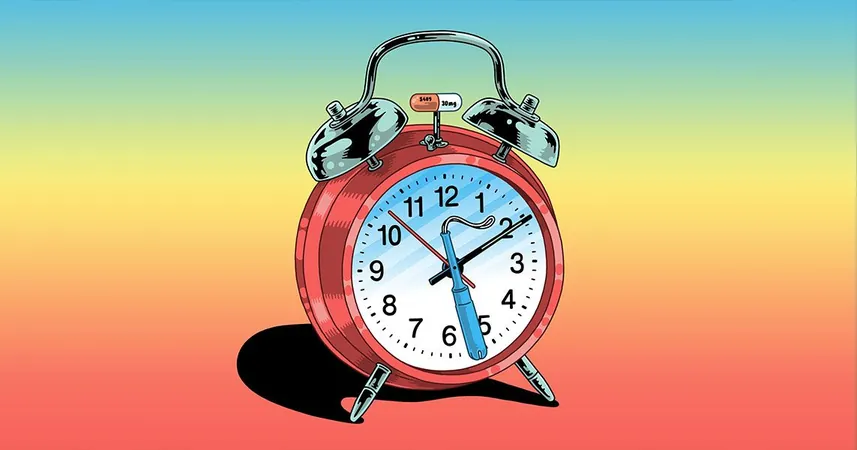
Unraveling the Hidden Connection Between Menstrual Cycles and ADHD
2025-06-03
Author: Chun
Have you ever felt like your brain is on a rollercoaster ride? For many women with ADHD, the ups and downs can follow a predictable pattern—linked closely to their menstrual cycles. Dive in as we explore how hormonal changes can cause ADHD symptoms to fluctuate.
After being diagnosed with ADHD in her mid-thirties, one woman's journey sheds light on a common dilemma: the intersection of medication and menstrual cycles. Initially, her ADHD medication gave her bursts of productivity, transforming her home office into a freshly painted haven. But as her period approached, fatigue crept in, overshadowing the effects of her medication and leading to feelings of frustration.
What’s behind these fluctuations? Experts suggest it has a lot to do with hormonal shifts. Studies indicate that as estrogen levels rise, they might enhance the effect of ADHD medications, which rely on dopamine—the brain chemical that regulates mood and focus. Yet, when estrogen dips before menstruation, many women report a sudden drop in focus and energy.
Recent research has corroborated these experiences, revealing that many women diagnosed with ADHD face difficulties that can ebb and flow with their cycles. A staggering rise in ADHD diagnoses in women has caught the attention of researchers, revealing that women are often misdiagnosed or inadequately treated due to a historical male-centric approach in ADHD research.
For some women, like Carmen, a 38-year-old mother of three, the symptoms are stark and undeniable. After watching a TikTok discussing similar experiences, she realized her medication seemed ineffective during her period. Despite suggestions from her physician to adjust her stimulant dosage during these critical days, a lack of robust research leaves her with uncertainty.
Dr. Patricia Quinn, a noted expert in this realm, emphasizes the need for individualized care. Symptoms vary drastically among women; some experience challenges for weeks leading up to their period, while others feel the effects more acutely in specific days. Adjustments in medication and hormone regulation can sometimes provide relief.
The emotional toll of these cyclical changes shouldn't be overlooked. Many women report feelings of shame and hopelessness, often blaming themselves for their symptoms instead of recognizing their hormonal triggers. This stigma can lead to debilitating self-criticism and anxiety, transforming daily challenges into sources of persistent distress.
Aniska, recently diagnosed with ADHD, voices the struggle of managing her symptoms while navigating the societal pressures of life. Just like others struggling during their premenstrual phase, she finds herself in a whirlwind of emotions, battling feelings of inadequacy and lack of control.
The conversation is slowly evolving, with promising research hinting that adjustments in medication during hormonal shifts can bring about significant improvements. A recent study revealed that increasing ADHD medication before menstruation showed positive outcomes for participants.
As awareness grows, it's imperative for healthcare providers to acknowledge and educate themselves on the complex interplay between hormonal changes and ADHD. For many women, understanding this connection could mean the difference between navigating life with clarity or getting lost in the chaos.



 Brasil (PT)
Brasil (PT)
 Canada (EN)
Canada (EN)
 Chile (ES)
Chile (ES)
 Česko (CS)
Česko (CS)
 대한민국 (KO)
대한민국 (KO)
 España (ES)
España (ES)
 France (FR)
France (FR)
 Hong Kong (EN)
Hong Kong (EN)
 Italia (IT)
Italia (IT)
 日本 (JA)
日本 (JA)
 Magyarország (HU)
Magyarország (HU)
 Norge (NO)
Norge (NO)
 Polska (PL)
Polska (PL)
 Schweiz (DE)
Schweiz (DE)
 Singapore (EN)
Singapore (EN)
 Sverige (SV)
Sverige (SV)
 Suomi (FI)
Suomi (FI)
 Türkiye (TR)
Türkiye (TR)
 الإمارات العربية المتحدة (AR)
الإمارات العربية المتحدة (AR)